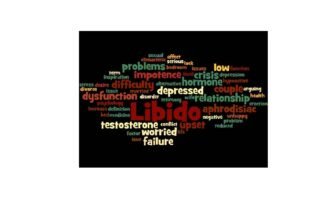Vegetarianism has gained momentum in recent years and vegetarian diets have become immensely popular. There are many reasons why people are following vegetarianism like personal choices, cultural legacy, health issues, no animal cruelty, maintaining the ecological balance etc.
Many people are opting for the vegetarian weight loss programme. This is because a well-balanced vegetarian diet is rich in fibres, antioxidants and folates and it has fewer saturated fats.
The Concept Of A Vegetarian Diet:
A vegetarian diet is a plant-based diet in which one does not eat meat, poultry or fish. This type of diet focuses on the consumption of vegetables, fruits, legumes, whole grains, nuts and seeds. As compared to animal foods these foods have fewer calories, fats and proteins. They are rich in fibre and micronutrients and they also contain some other plant compounds that have health benefits. A well-balanced vegetarian diet can surely help a person shed extra weight.
Types of vegetarian diets:
- Vegan Diet:
A vegan diet is a completely plant-based diet and it does not include meat, fish, poultry and dairy products. Even honey is not included in a vegan diet. A vegan diet includes vegetables, fruits, whole grains, nuts, seeds, legumes and lentils. Sometimes vegan diet can be deficient in certain nutrients like iron, zinc, omega 3 fats and vitamin B12.
- Ovo vegetarian diet:
The prefix ovo stands for eggs and it means that this diet includes eggs. But it does not include dairy products. In addition to meat and fish all dairy products and their derivatives like curd, butter etc are excluded from this diet. But egg and egg dishes are included in the diet.
- Lacto vegetarian diet:
A Lacto vegetarian diet does not include meat fish and eggs but it includes dairy and dairy-based products. This is the most popular type of vegetarian diet and it includes milk, cheese, yoghurt etc.
- Lactoovo vegetarian diet:
Meat and seafood are not included in LactoOvo vegetarian diet. But dairy and eggs are included in this type of diet. So one can have eggs, milk, cheese, yoghurt etc but they cannot have animal-derived flesh products.
- Flexitarian and pescatarian diet
Now, these two are not typical vegetarian diets. A Flexitarian diet is mainly vegetarian but it does include some animal foods. Whereas in the pescatarian diet meat is not included but fish is included.
Benefits Of A Vegetarian Diet:
One must consider vegetarian weight loss because studies show that better weight management is possible in the case of these diets. It has been found that it is easier to lose weight on a vegetarian diet as compared to a non-vegetarian diet.
One can get a good amount of potassium from a vegetarian diet and this is good for the maintenance of blood pressure. However, for this one needs to ensure that they are having a balanced diet.
It has also been found that a vegetarian diet may help reduce the risk of cardiovascular disease, diabetes, certain cancers etc.
Disadvantages Of A Vegetarian Diet:
Vegetarian diets may be deficient in proteins and fats and the person may end up consuming more carbohydrates. A high grain to veggie ratio also puts the person at risk of gaining weight rather than losing it. Thereforeyou must have a balanced vegetarian diet that includes lots of fresh vegetables, fruits, grain, legumes, nuts, lentils etc in the right proportion.
There are chances of nutritional deficiency in the case of plant-based diets. There are chances of zinc deficiency because the plant sources of zinc have some zinc absorption inhibitors like phytate. There may also be a deficiency of micronutrients like vitamin B12 in the case of plant-based diets.
There are chances of exposure to herbicides as well as pesticides in the case of vegetarian diets.
Factors That Prevent Weight Loss In A Vegetarian Diet:
One may feel that a vegetarian diet may be one of the best ways to lose weight. However, there are some barriers due to which one may not be able to lose weight in the case of a strict vegetarian diet.
- Lack of protein in the diet:
Protein is known to improve satiety levels and keeps you full for a long time. It regulates hunger and helps to reduce calorie intake and this, in turn, helps a person to reduce weight. In the case of vegetarian diets, there are chances that you may not get enough proteins and as a result, you may end up eating more food as you do not feel full. This in turn can jeopardize your weight loss plans.
- Increased intake of refined carbohydrates:
In a vegetarian diet, one may end up eating too many refined carbohydrates like bread and pasta. These foods with refined carbohydrates do not have fibre and hence they do not curb hunger pangs like whole grains that have complex carbohydrates. Refined carbohydrates may also result in the release of extra insulin in the blood. Insulin regulates blood glucose levels. Excess insulin in the blood can also be a contributing factor in weight gain.
- Too much consumption of food rich in calories:
When you switch to a vegetarian diet you have to include high-fat plant foods in your diet. You have to consume nutritious foods like coconut, avocados, nuts etc which have more calories per gram as compared to proteins and carbohydrates. Fats contain 9 calories per gram whereas proteins and carbohydrates contain 4 calories per gram. There are also chances that some people may eat more healthy fats than what is required and this also can affect your weight loss regime.
- Consumption of highly processed vegetarian foods:
Many highly processed products are vegetarian but they have more calories and they also have different additives and preservatives. Ultra-processed foods have LDL which is known as bad cholesterol and these type of foods also increase the risk of obesity. So, if you are consuming these highly processed vegetarian foods then instead of losing weight you will end up gaining weight.
Best Tips To Lose Weight With A Vegetarian Diet:
If you want to make your vegetarian weight loss programme successful then you can follow the below-mentioned tips:
To lose weight you have to burn more calories as compared to the calories that you are consuming. For this, you have to watch out for the portion size that you are having. Although the food that you are eating is nutritious if you have an excess of it then your weight loss programme can go for a toss.
It is better to choose foods that contain complex carbs as they will satisfy your hunger faster. Therefore make sure that you have more legumes, starchy veggies, whole grains and fresh fruits.
If you want to lose weight then it is better that you stay away from refined carbohydrates. It is always better to stay away from bread and bakery products. But if you have no other food option then make sure that you have the same in moderate quantities.
You just cannot afford to make compromises with protein intake when you are trying to lose weight. Proteins make you feel full faster and this, in turn, reduces the intake of excess calories and this helps in losing weight. Nuts, beans, and milk are good sources of protein and make sure that you include these in your diet.
Processed foods like frozen meals, ready-to-cook foods etc have excess salt, sugar etc and therefore it is better to avoid having these types of foods.
When you are on a vegetarian diet make sure that you include protein-rich foods in every meal. Eat lots of high-fibre veggies like mushrooms, green leafy vegetables, broccoli, cauliflower etc in your diet. Eat more unprocessed foods like whole grains, fruits, vegetables etc.
Along with a healthy diet,you must drink lots of water and keep your body hydrated. It is also important that you get enough sleep and lead a stress-free life. One also has to focus on regular exercise and lead an active life to lose the extra pounds.
Vegetarian foods that help in weight loss:
- Include whole grains like wheat, barley, quinoa, and brown rice in your diet.
- Beans and legumes like kidney beans, lentils, black beans etc can also be useful for weight loss.
- High fibre vegetables like leafy vegetables, cauliflower, mushroom, and broccoli are a must.
- Starchy vegetables like potatoes and corn are important.
- You must also include non-starchy vegetables like carrot, celery, cucumber, tomatoes, brinjal etc.
- Berries, apples, grapes, citrus fruits, kiwi, mango and other fruits must be included in the diet.
- Focus also has to be on nuts and seeds like almonds, cashews, pistachios, walnuts, sunflower seeds, chia seeds, etc.
- Include lean proteins like milk, Greek yoghurt, soy products, legumes, beans etc in your diet.
- Include coconut, olive oil, nuts, seeds and other healthy fats in your diet.
- Make sure that you drink plenty of water and have healthy beverages that do not have added sugar.
Vegetarian foods to avoid in your weight loss programme:
- Avoid processed foods like frozen foods, fast food products like burgers, chips etc.
- Keep away from refined carbohydrates like crackers, bread, pizza, pasta etc.
- Do not consume sugary foods like pastries, candies, cookies etc.
- Do not consume sugar-laden beverages like sodas, sweet tea, juices that have added sugars etc.
The Best Sample vegetarian plan for weight loss:
Mentioned below is a sample vegetarian weight loss plan. Please note that this is just to give you an idea about how the diet plan should be. Connect with a good dietician who can work out the right diet plan for you depending on your body type, weight loss goals etc.
Day1:
Breakfast: oats porridge. Add a few nuts to the porridge.
Lunch: whole grain bread, lentils, peas, carrot
Dinner: whole grain bread, bottle gourd veggie.
Snacks: seasonal fruits/buttermilk/cucumber detox water.
Day2:
Breakfast: whole wheat bread, mixed vegetables like peas, carrots, broccoli, yoghurt.
Lunch: lentil curry and brown rice with fenugreek leaves.
Dinner: mixed vegetables with tofu and brown rice.
Snacks: seasonal fruits/buttermilk/cucumber detox water
Day3:
Breakfast: Greek yoghurt, coconut, pineapple and walnuts
Lunch: whole wheat bread, lentil soup and tofu
Dinner: whole grain pasta, brinjal and green peas.
Snacks: vegetable salad or whole grain granola bar.
Day4:
Breakfast: Smoothie with fruits and nuts, multigrain toast.
Lunch: whole wheat bread, lady’s fingers, lentil soup.
Dinner: Spinach with brown rice.
Snacks: Mix vegetable salad or tofu.
Day5:
Breakfast: multigrain toast, mixed vegetables.
Lunch: whole wheat bread, tofu and peas.
Dinner: Baked potatoes, mushrooms and mixed veg and chickpea patties
Snacks: Plain Greek yoghurt and cherries.
Day6:
Breakfast: Mixed lentil soup and whole wheat bread and fruit.
Lunch: whole wheat bread with potato and brinjals, tomato salad.
Dinner: Mix vegetable soup and brown rice.
Snacks: Seasonal fruits or nuts or seeds.
Day7:
Breakfast: multigrain toast and chickpea hummus
Lunch: Spinach soup, whole wheat bread and tofu
Dinner: Brown rice with fenugreek leaves, vegetable soup.
Snacks: Multigrain granola bar or fruits
As already mentioned this diet chart is only to give you an idea about what type of diet plan one needs to work out. It is always better to take professional help to get the precise diet plan that is suitable for your body type.
Conclusion:
Yes, you can choose a strict vegetarian plan to lose weight. But before that, you need to take into consideration all the pros and cons and then work out a vegetarian diet plan that provides all the nutrients that your body needs and also helps you lose weight.







